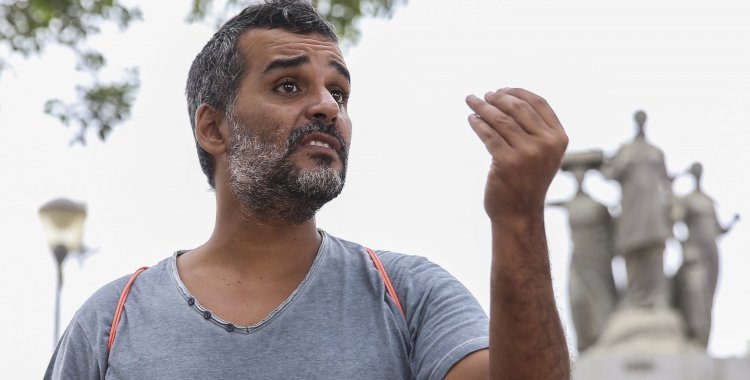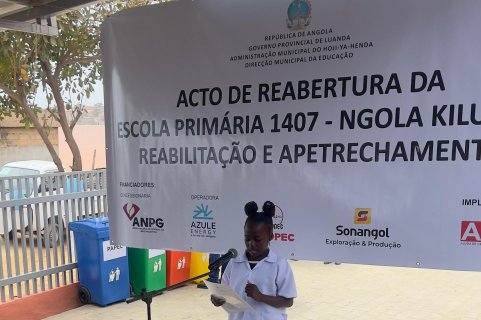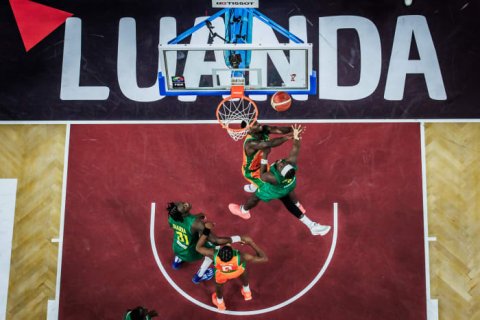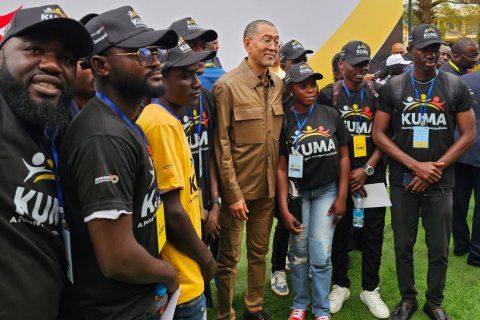Luaty Beirão, who intervened this Tuesday, remotely, in a debate on the right to demonstrate in Luanda, criticized presidential decree 241/22 of October 7, 2022, which prevents him from returning to Angola, the country he left in December.
"It is a decree that, in a way, suspends my nationality and that of anyone who has chosen not to be vaccinated. How can a national citizen be prevented from entering the country where he was born?", he questioned, stressing that "there is no president who can aspire to have the power to say who can or cannot enter the country".
In addition to Angola, the US requires the presentation of a vaccination certificate, but only for foreign citizens.
The musician, also known as Ikonoklasta, also stated: "If there was a mandatory vaccination policy in Angola - which there isn't -, the most they could do and even so I could take it to court and challenge this rule was, upon arrival, saying that I can only return to social life after being vaccinated. Preventing me from entering Angola with a presidential decree that is worth less than the ordinary law, which is worth less than the Constitution, is absurd", he criticized.
"This decree includes people who want to join higher education, who want to take a public exam, who want to be state employees," he added.
"The vaccination obligation, in my opinion, is unconstitutional", he continued, arguing that they would not even be able to vaccinate everyone in Angola and that the vaccine is not sufficiently tested.
In any case, he added: "I don't want to argue about the validity of the vaccine, I am arguing about the validity of a President deciding, with his pen, to suspend another person's nationality, that's what he did".
The activist, who treated João Lourenço as a "usurper" and "the highest tenant in Cidade Alta" [where the Presidential Palace is located], stated that this issue should be resolved by jurists, and admitted suing the State for "abuse of power", stating that he will remain abroad until the decree is revoked.
Luaty Beirão also reflected on his participation in March 7, 2011, which served as the motto for the meeting of activists in the Pauline Sisters auditorium, in reference to a demonstration repressed by the former president, José Eduardo dos Santos.
She recalled that there was, at the time, a climate of excitement over the so-called "Arab Spring", in which it was believed that even the strongest could relinquish power.
He said that it was his first experience of a direct collision with the repressive force, from which he emerged "more aware that there are rights" that have to be claimed and that one cannot always give in to fear "because it is more repressive than any cell".
Luaty Beirão, one of the "15+2", as the 17 activists tried and convicted in 2016 for the crimes of rebellion and criminal association became known, for reading the book "From Dictatorship to Democracy", considered that "Angola is a great humorous 'sketch'" and that between police and activists a 'game of cat and mouse' is often played, in which the regime "shows great fragility in the face of people who carry a poster".
Regarding the current demonstrations, he considered it "remarkable" that the concept of demonstration has been normalized, despite the fact that there are still few people at the protests.
"There is still a notion that they can lose their job", he underlined, noting that the notion that it could be synonymous with death was disappearing.
Asked about a recent interview by João Lourenço to radio RFI where he denied that there was repression of demonstrations in Angola and that these take place "every holy Saturday", Luaty Beirão said that an announcement does not mean that demonstrations take place.
In addition, he commented, João Lourenço intended to streamline and trivialize the way to prevent them from happening, he said, stressing that "repression continues to exist, but not in all demonstrations".
He also stressed that the President was "speaking out", to "make up the image of Angola for the partners", in an act that he considered naive.
"They know, they follow what is going on, they know that the courts are a joke, to me it seems childish", concluded the 'rapper', adding that he understands the movement of Angolans who decide to "leave the backyard" and emigrate.
"I understand perfectly, it's a hard life," he concluded.







